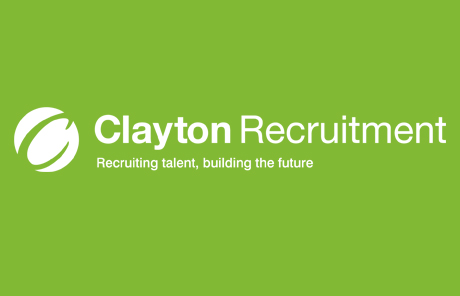
Easy to Action Interviewing Strategies for Hiring Managers
- Posted by Lynn Sedgwick
- July 25, 2022
The interview process can be a gruelling task for all parties involved. When most hiring managers think about the complexity of interviewing, they focus on the challenges facing the person being interviewed. However, those hosting the interview also have their own hurdles to overcome too.
From avoiding unconscious bias, avoiding ageism, and making sure you sell your candidates on the idea of working with your business, there are several important points to keep in mind as well as remembering all the main points covered at the end of the session.
Here are some of the top strategies to follow as a hiring manager if you’re concerned you might not be getting the most out of your interviews.
1. Know Your Interview Options
The first step in ensuring you can master your interviews as a hiring manager is knowing what methods you can use to best connect with potential candidates.
Today, the traditional face-to-face interview isn’t your only option. Video interviews have increased by 67% due to the pandemic and the rise of remote working with technology advancements being key. As hybrid employment options continue to thrive and companies look for ways to streamline the interviewing process, video conversations will likely grow to be more common in many businesses throughout the upcoming years if not already popular.
But not forgetting, there’s also the time-old classic of picking up the phone for simple phone interviews as well to simply hear the person who could potentially be working with you.
Each type of interview has its own challenges to consider. For instance:
- In-person interviews: You’ll need to think about where you’re going to host your interview, whether it’s a welcoming space, who will attend, and whether the candidate will present or just have a simple face to face conversation.
- Video interviews: Consider what kind of video meeting software you’ll be using, the background you’ll have in your video, and how you can present yourself as professionally as possible over a webcam. Always test the sound and camera quality beforehand and check whether all those participating are visible on screen.
- Phone interviews: Ask yourself whether you may need to record any phone interviews to go back over them later and how you can ensure you get a promising idea of what the candidate is like based on voice alone.
2. Avoid Inappropriate Questions
Inappropriate questions are becoming more common than you would think in interviews. While certain topics of conversation can feel like polite small talk at first, they often cause more problems than you’d think. For instance, asking people about what they did on the weekend can create an unconscious bias if you also have a shared hobby with them – but also at the same time, could be harmless conversation to break the ice.
Unconscious bias could favour one candidate over another because you like certain things about their lifestyle or personality, which have nothing to do with the role or the ability to complete their tasks.
Some other questions to avoid are:
- Where do you live?
- How did your childhood shape your professional life?
- If you could choose a different career, what would you choose?
- What is the worst trait of your previous manager?
All the above questions could be classed as too personal, too confronting and encouraging speaking badly about others – all traits you want to avoid when interviewing someone for the first time and something you don’t need to hear to assess their capabilities for this role.
3. Interview Styles and Formats
There are many kinds of interviewing techniques that today’s business leaders and hiring managers can use, including competency-based or collaborative interviews, presentations, and group interactions to get a real feel for the potential candidates.
Interviews are always best performed with two people from the hiring company, which can help avoid bias. It also gives those hiring the chance to discuss different opinions on those they are interviewing and not decide based solely from one person’s perspective and therefore giving the candidate a fair chance.
Other methods are to consider using a first and second stage interview format before the final decision is made. In today’s environment, many first and second stage interviews can take place over Zoom or Teams so that it suits all parties involved. Carrying out interviews online also gives you more chance to interview more people, without the need for travel, time allocation and gives the candidates a better chance of being able to partake at a time that suits them and you best.
4. Generalise Your Interview Questions
Standardising your interview questions makes it easier to assess your candidates when you have interviewed several people for a role. It also means you’re less likely to allow unconscious biases to get in the way of your hiring decisions because you’re evaluating everyone based on the same set of guidelines, criteria, and questions.
Create specific competency-based interview questions for the specific role in question, which allows you to score each potential employee based on their specific values, behaviours, and results.
For instance, you can ask questions like; “share examples of times they’ve acted as a leader” or “shown exceptional teamwork”, and then make notes about their responses. Assigning scores to answers will also help you see who you should be shortlisting based on their answers compared to others if you are interviewing a larger number of people.
Your interviews need to maintain a level of flexibility. It will be logical to ask follow-up questions to elicit more detail at times when needed if the candidate doesn’t elaborate themselves.
“Tell me more about X or Y or why you decided to do B or C” are classic follow-up questions that work well to get more of an understanding of the candidates’ experiences.
To make sure you know about a candidates’ hard skills, behavioural and soft skills there are some questions that LinkedIn Talent Solutions suggests you cover.
- “Say you’re negotiating a contract or administrative action or settlement in which the parties are far apart in what they want. Use a past example of this to talk me through your negotiation process.”
- “What would you do if you were asked to work on a case, contract, or business scenario that gave you ethical qualms? Has this ever happened to you—and what did you do?”
- “Tell me about a time you had to make a tough call that required you to decide between a gut feeling and the strategic decision-making of outside counsel.”
5. Make Notes and Follow Up
Finally, make sure you take notes as often as possible as you progress through the interviews. It’s easy to get caught up in the moment of the conversation and then forget everything you needed to know about the candidate when you come back to review later.
Always set aside some time at the end of each interview to gather your thoughts and catalogue what stood out to you most about the candidate (good and bad) before heading into another interview or meeting.
Making notes can also help when you’re following up with your candidates by allowing you to provide a more contextual and relevant message and feedback, should they be successful or not. Showing you remember what you said (like any requirements for their starting dates or training they need) shows the potential candidate you’re invested in working with them and that you are attentive to what they were talking about during their time with you.
Remember, if you’re struggling with your interviewing process, it’s often helpful to seek some help from a specialist recruitment company like ourselves that can help with a lot more than just finding you new candidates – we can also give you advice on how to interview more effectively, with tips on questions you might need to ask.



